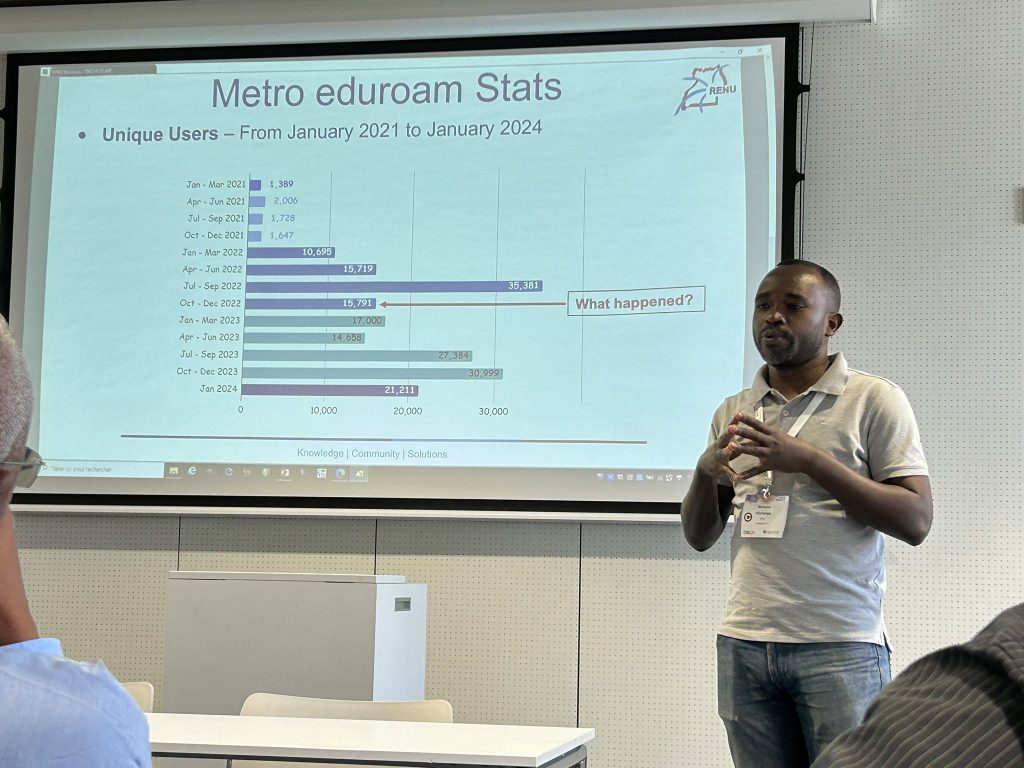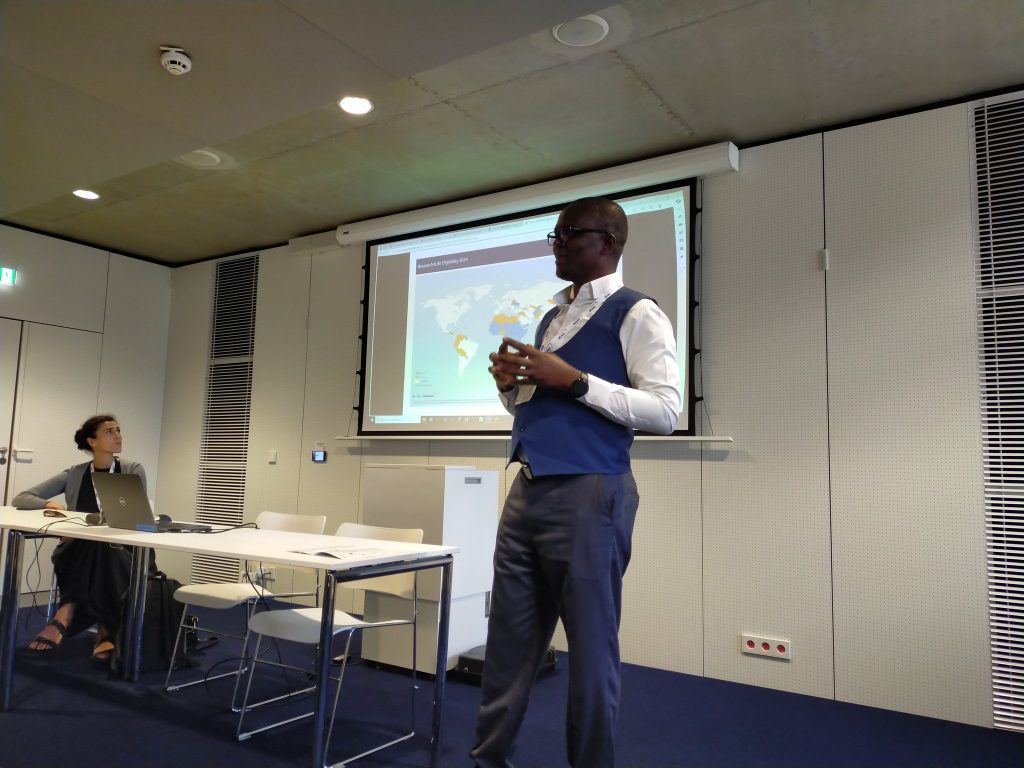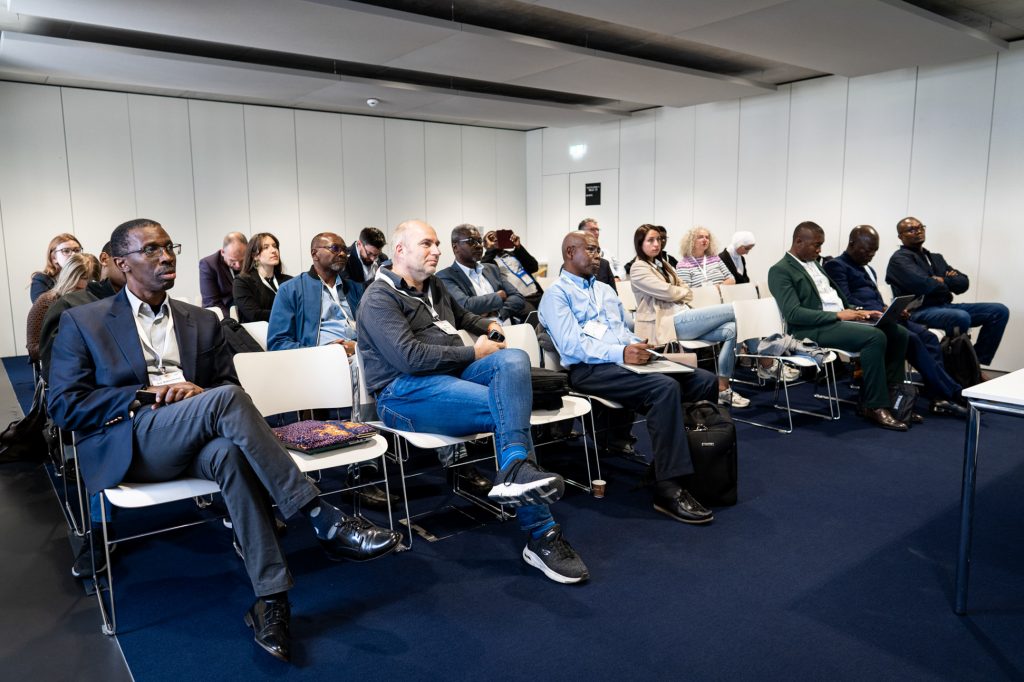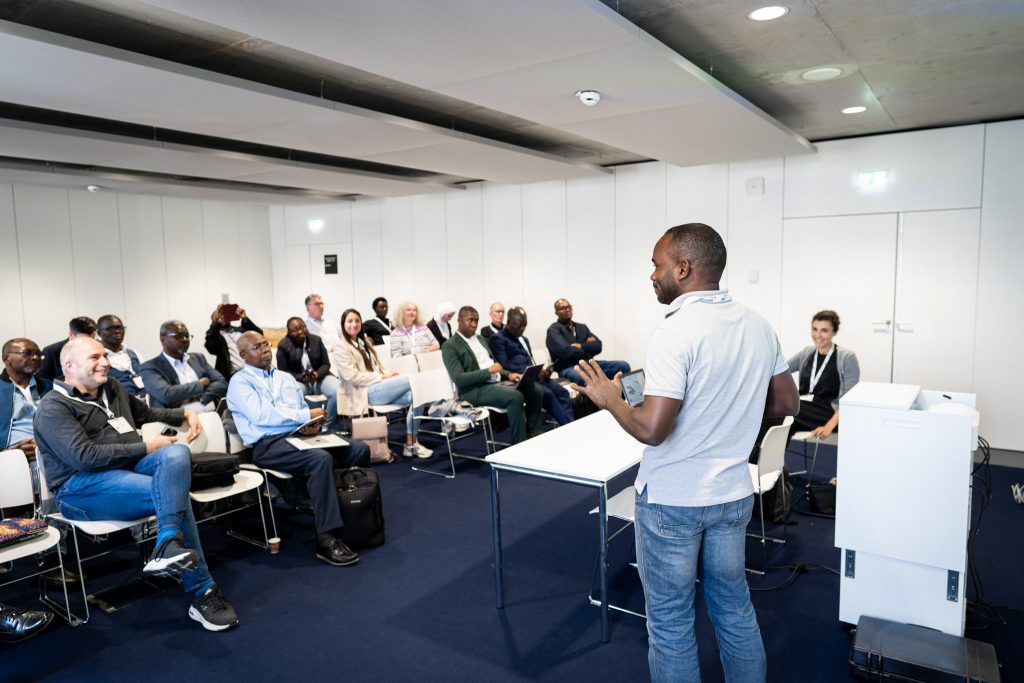Community Hubs were introduced at TNC24, held in Rennes, France, from June 11-12, 2024, as sessions where conference participants were able to learn more about community-led initiatives, find and exchange ideas, solutions or assistance within the community, and at the same time be connected with global peers. One of the hubs focussed on innovative initiatives led by NRENs in Africa. Dubbed the “African Innovations Community Hub,” it included presentations by Nicholas Mbonimpa, CEO of RENU, the NREN of Uganda and Eliakim Okundi and Prof Madara Ogot, the Project Manager and the CEO of UbuntuNet Alliance, respectively.
Mr Mbonimpa’s presentation focused on the various innovations (or flavours) of eduroam developed by RENU to increase secure access to their network beyond the university campuses. These included eduroam-on-the-go, a portable eduroam-enabled mi-fi device, and metro eduroam hotspots placed around Kampala and other towns in Uganda. The latter are built on solar-powered routers, removing the need for electricity at the hotspot locations.
Research-4-Life is based at the World Health Organisation and works with publishers to make journals and e-books available to universities in low-income countries at no cost. A severe limitation of their system, which has over 200,000 online resources, has been the requirement for students and staff of beneficiary institutions to be on their university networks to access the Research-4-Life resources. Eliakim Okundi made a presentation on the collaboration between UbuntuNet Alliance and Research-4-Life to upgrade their systems and incorporate Single Sign-On capabilities to enable students and staff at beneficiary institutions to access resources from anywhere using their university-assigned credentials. The system shall leverage the Identity Federations of NRENs of beneficiary institution countries. The Alliance-initiated project shall make the Single Sign-On system available to all countries where Research-4-Life operates.
Finally, Prof Madara Ogot presented one of the Alliance’s pilot initiatives to increase African faculty scholarship and provide university students with locally (in Africa) authored textbooks. The project supports faculty in authoring textbooks that have broad applicability across the continent, having the texts undergo a process of quality assurance and editing, and making them freely available to students on a “Kindle-like” platform that protects the authors’ intellectual property. The ongoing pilot is developing a law and a computer science text. The pilot and the Research-4-Life project are supported by the European Commission through the AfricaConnect3 project.




